At the 2015 ACR/ARHP Annual Meeting in San Francisco in November, the ACR and the ARHP honored a group of distinguished individuals who have made significant contributions to rheumatology research, education and patient care. In the December 2015 issue, The Rheumatologist reported on the ACR’s awards. This month, we speak with the ARHP winners about their individual contributions to advancing rheumatology, as well as to the new class of fellows.
And the winners are…
ARHP President’s Award
 Paul Adam, MSW, Rheumatology Liaison Outreach Coordinator, Researcher, Vancouver, British Columbia, Canada
Paul Adam, MSW, Rheumatology Liaison Outreach Coordinator, Researcher, Vancouver, British Columbia, Canada
Background: For more than 25 years, Mr. Adam has worked as a clinical counselor, program coordinator and researcher. He has explored the rheumatoid arthritis (RA) patient journey from early signs and symptoms to diagnosis and treatment. Collaboratively, he has created an online decision aid for methotrexate and a Web-based tool to assist RA patients with tracking their symptoms and disease activity.
Mr. Adam says his career in rheumatology was merely “happenstance,” because the area of study was suggested to him during his thesis, which led to a position at the Mary Pack Arthritis Program.
“I found that people with a chronic disease, such as arthritis, were generally keen to learn varied strategies for self-managing their disease,” he says.
He joined ARHP in 1990 and has been involved with numerous committees. He was a member of the ARHP Executive Committee, participating in the development of the ACR/ARHP online Learning Management System. As part of that project, he developed an Online Learning Position Paper detailing strategies and recommendations for individualizing the online learning experience. Or as he puts it, “as with all of us, I stand on the shoulders of those who had the foresight and vision to originally launch eLearning in ARHP.”
‘Over time, I’ve realized that the ARHP is one large, extended family.’ —Paul Adam
Q: What is it about rheumatology that keeps you so engaged?
A: As a social worker, I’ve always been attracted to strategies that empower people with arthritis to take control of their disease. I’ve also heard from people with arthritis that they sometimes struggle in knowing how the information they’ve read applies to them, and from that I took that we need better ways of providing tailored information to individuals. Online and mobile technologies have significant potential to do this by helping interpret and make sense of a person’s symptoms and provide actionable recommendations.
Q: How do you want others to remember your work in this field?
A: I’m the guy who likes to work behind the scenes; the one who helps the system run more smoothly. So when my life’s work is finally complete, I hope that I’ll have left behind a system where our clients get quality, prompt care that is appropriate for their needs. I also hope that the tools we’re currently working on creating will help clients be more empowered.
Q: What has ARHP meant to you?
A: I remember being awestruck when attending my first Annual Meeting and [serving] on my first committee. I was seeing the people who were writing the articles that I was using to help improve my practice. After getting past being dumbfounded, I found most, if not all, of these individuals were down to earth, supportive, helpful and open to hearing what I had to say. Over time, I’ve realized that the ARHP is one large, extended family.
Q: What is the most fulfilling part of your job?
A: I am fortunate to work for an organization that values and supports continuous quality improvement. For example, I have a strong interest in models of care, and with one of these teams, we’ve begun to explore a stepped-up approach that provides quality care yet addresses some of the issues our program has with long waiting lists. Thus, the fulfillment comes from working with talented colleagues, being challenged and supported to improve care, and having workdays balanced between daily routine and new projects.
ARHP Addie Thomas Service Award
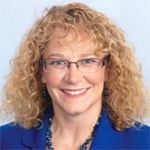 Donna Everix, MPA, PT, Physician Liaison for Mills-Peninsula Health Services, Burlingame, Calif.
Donna Everix, MPA, PT, Physician Liaison for Mills-Peninsula Health Services, Burlingame, Calif.
Background: When you’re nearing 30 years of experience in physical therapy, it might seem hard to get motivated each day. Meet Ms. Everix, who’s still plugging along as a champion for early intervention and rehabilitation to help prevent degenerative changes and disabilities so often associated with rheumatic diseases.
“Twenty-five years ago when I finished PT school, the care focused on rest and inactivity so you [wouldn’t] aggravate the joints,” she says. “What we found through research was that the inactivity was part of the issue and not just the disease process. … I decided not many people were educated about this and took it on as one of my lifelong responsibilities to promote awareness and the need to educate patients and healthcare providers.”
Mission accomplished. Her accomplishments include numerous committee assignments for ACR and ARHP. She worked with the American Council on Exercise to help develop the Fitness Professional’s Guide to Training Clients with Osteoarthritis. She wrote the first Walk with Ease Program for the Arthritis Foundation and also consulted with the group on a yoga-based video and water exercises.
Taking care of your body & adapting over time to disease pathology & lifestyle activities are similar to taking your car in for service intermittently to make sure it keeps running smoothly & as efficiently as possible. —Donna Everix
Q: You were recruited by a mentor to start an arthritis center at Mills-Peninsula. What did that teach you about mentorship?
A: Mentoring is the key to success, passion and educational promotion in the field. I had phenomenal mentors early on—including nurses, physicians and therapists—with tons of experience that taught me what can and should be done for these patients.
Q: What has the ACR meant to you?
A: The ACR and the ARHP have been the main mechanism to networking with colleagues who share the same passion and desire to help those with arthritis. I have made lifelong friendships with the people I initially worked with in Milwaukee, and I look forward to my annual retreat with colleagues I have met through the ARHP since 1988. I attend the ACR/ARHP Annual Meeting every year, where healthcare providers from across the U.S., Canada and the world come together to learn and share information for people with arthritis. We learn, share treatment ideas and have a lot of fun together. It still amazes me that many people still feel that there is very little you can do if you get arthritis.
Q: If you could change one thing about the field of rheumatology, what would it be?
A: Promoting the team approach with a mandatory referral to therapists so the person with arthritis makes an early connection with someone who is well versed in the musculoskeletal system. Medications and surgical interventions may be needed along the way, but taking care of your body and adapting over time to disease pathology and lifestyle activities are similar to taking your car in for service intermittently to make sure it keeps running smoothly and as efficiently as possible.
ARHP Distinguished Clinician Award
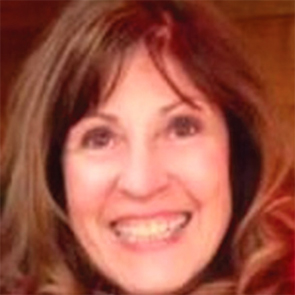 Karen Huisinga, MN, ARNP, FNP, Rheumatology Nurse Practitioner, Seattle
Karen Huisinga, MN, ARNP, FNP, Rheumatology Nurse Practitioner, Seattle
Background: As a rheumatology nurse practitioner, Ms. Huisinga sees patients independently. Besides caring for her own patients, she contributes to the education of residents and fellows at the University of Washington. She also functions as a clinical coordinator at the Seattle division of the VA Puget Sound’s rheumatology clinic, screening consults and assigning patients to fellows and residents.
She’s also smart enough to know what she doesn’t know.
Rheumatologists in her practice “are there for consultation on complex issues,” she says. “I’m supposed to know what I don’t know and know when to consult. And I’ve certainly done that through the years. It’s advanced my knowledge and my ability to care for very complex rheumatology patients.”
It seems to have worked well. Ms. Huisinga works with residents and fellows at the University of Washington as clinical manager for the Seattle VA rheumatology clinic. She has also been an active ACR/ARHP member for decades.
Rheumatologists in [Ms. Huisinga’s] practice ‘are there for consultation on complex issues,’ she says. ‘I’m supposed to know what I don’t know & know when to consult. And I’ve certainly done that through the years. It’s advanced my knowledge & my ability to care for very complex rheumatology patients.’ —Karen Huisinga, MN, ARNP, FNP
Q: What does a clinician award mean to a front-line provider, such as yourself?
A: It just made me feel so appreciated. I’m not a big researcher. I don’t run a department. I suit up and show up every day and see patients. To have people recognize my contribution to that and to our teaching program for our young rheumatology fellows—it was just really remarkable. I was deeply touched.
Q: Why is working with veterans rewarding?
A: People have a lot of ideas about veterans. They’re like your dad or your uncle. They’re like family, and they’re very grateful for the care that you give. But they also have a lot of real diseases. One of the things I’ve always appreciated about the VA is that they allowed me to practice to my full potential as an independent practitioner to treat a population of veterans. That’s allowed me to have significant growth that other nurse practitioners have not have had the opportunity to experience.
Q: Why do you love teaching?
A: I’m innately a teacher. I have always been. Sharing knowledge that makes a difference in people’s lives has a powerful, powerful impact. I’ve been following some of my patients for 20-plus years. I have seen them over time get into disease remission. It changes their lives. It’s satisfying because it empowers people. And to me that’s what teaching is.
Q: How enjoyable is the career path of an independent NP?
A: It’s fabulous. Over the years, it builds a real core clinical education. It’s given me a lot of confidence to practice. But I also know I have other experts to bounce a case off. That’s allowed me to have significant growth that other nurse practitioners have not. In talking with other nurse practitioners, they are amazed sometimes at the real richness of my practice.
ARHP Lifetime Achievement Award
 Patricia Katz, PhD, Professor of Medicine and Health Policy, University of California San Francisco
Patricia Katz, PhD, Professor of Medicine and Health Policy, University of California San Francisco
Background: Dr. Katz studied measurement theory and exercise science before “stumbling” into a career in medicine—how fortunate for the field of rheumatology.
“When I moved to San Francisco in 1986, I got a job working at UCSF, and I’ve been there ever since,” she says. “Soon after I started at UCSF, I began working with Ed Yelin, who was doing research in rheumatoid arthritis, and it just resonated. That was 25 years ago. It was an accidental, fortuitous occurrence.”
Dr. Katz’s research has appeared in more than 200 publications, with her primary interests being the measurement of patient-centered outcomes and the impact of lifestyle factors—primarily obesity and physical activity—on outcomes. She has served the ARHP in many capacities, including on the Program Committee and Subcommittee on Diagnostic, Classification, and Response Criteria. She is a past editor of Arthritis Care & Research, has attended every ARHP meeting since 1990, and served a three-year term on the Rheumatology Research Foundation Scientific Advisory Council.
“Both the ARHP and the ACR have been important to my career,” she says. “I’ve had the opportunity to meet and develop collaborations with people from all over the country. Volunteer opportunities from both have given me a lot of new skills and exposure, and have been beneficial in many ways.”
She received the ARHP Distinguished Scholar Award in 1997, the STAR Award in 2005, and the ARHP Presidential Award in 2003 and 2010.
‘Follow your passion, but also pay attention to what other people are doing and try to integrate information from different fields.’ —Patricia Katz, PhD
Q: What is the most fulfilling part of your job?
A: I really enjoy interacting with my colleagues, both here at UCSF and elsewhere. That is very fulfilling. And I just love the creative part of science, whether it’s thinking about a new idea, starting a new study, or trying to tease out what is important from study results. That creative spark is incredibly fulfilling.
Q: What advice do you have for young scientists entering this field?
A: Follow your passion. If you are going to stick with something for a long time, you really have to love it. So follow your passion, but also pay attention to what other people are doing and try to integrate information from different fields.
Q: What has changed the most during your career?
A: The measurement science of patient-reported outcomes has changed tremendously. Rheumatology has always been at the forefront of developing and using patient-reported outcomes. The standards have really improved over time. Rheumatology is still leading the way, even in some of the newest measurement technologies and techniques.
ARHP Distinguished Educator Award
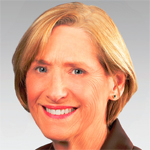 Susan Klepper, PT, MS, PhD, Pediatric Physical Therapist, New York
Susan Klepper, PT, MS, PhD, Pediatric Physical Therapist, New York
Background: Dr. Klepper never intended a career in pediatrics. Then she noticed her 4-year-old son had a different gait. His fingers were swollen. So were his wrists.
She suspected childhood-onset arthritis, and she was right. She returned to graduate school, and her focus was pediatrics, in particular physical fitness in children with JIA. Her current research focuses on the performance of healthy children and children with JIA on the 6-Minute Walk test, which gauges functional exercise capacity.
“It is both the personal stories that parents and kids share and the ‘puzzle’ that each child’s problems present,” that keeps her engaged, Dr. Klepper says. “Additionally, the rheumatology community is multidisciplinary and there is respect among members for each person’s knowledge and skill in taking care of individuals with inflammatory disorders.”
Dr. Klepper is on the physical therapy faculty of Columbia University, holds a clinical appointment in the Department of Rehabilitation and Regenerative Medicine at New York Presbyterian Hospital and frequently consults with the pediatric rheumatology team at Children’s Hospital of New York. She has served on multiple ACR and ARHP committees, including the ARHP Executive Committee.
‘As a parent who has raised a child with JIA, I would encourage the next generation of rheumatologists to appreciate the need to foster a true inter-professional model of patient care in treating children with rheumatic diseases.’ —Susan Klepper, PT, MS, PhD
Q: What changes to the field have you witnessed over the course of your career?
A: I have to say, without a doubt, it would be the advances in both the pharmacological management of inflammation and the growing recognition of the importance of both fitness testing and training in children and adolescents with rheumatic diseases.
Q: What advice do you have for the next generation of practitioners?
A: To encourage them to work with children who have rheumatic disease. As a parent who has raised a child with JIA, I would encourage the next generation of rheumatologists to appreciate the need to foster a true inter-professional model of patient care in treating children with rheumatic diseases. Although there has been great progress in the medical management of these diseases, these children and adolescents often need and benefit from PT, OT and other rehab services.
Q: Mentorship is extremely important to the practice of medicine these days. What is the value of that collaboration?
A: I’ve benefited from the wisdom and guidance of many mentors during my years as an ARHP member. Probably the most important lessons were to maintain focus on what was important to me as a rheumatology health professional and to be persistent in my own education.
ARHP Distinguished Scholar Award
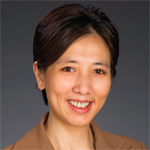 Linda Li, BSc (PT), MSc, PhD, Associate Professor and Harold Robinson/Arthritis Society Chair, University of British Columbia, Vancouver; Senior Scientist, Arthritis Research Canada
Linda Li, BSc (PT), MSc, PhD, Associate Professor and Harold Robinson/Arthritis Society Chair, University of British Columbia, Vancouver; Senior Scientist, Arthritis Research Canada
Background: In the late 1990s, Dr. Li had questions. She was drawn to arthritis because of the diagnostic and treatment challenges, but this was before powerful new medications and biologics arrived.
“We were struggling with the whole idea of how to manage the chronic condition,” she says. “Do we have the person see a specialist alone? Or a multi-disciplinary team? What is the best approach to manage?”
Now Dr. Li is the one people come to with questions.
Her research has focused on understanding the help-seeking experience of people with arthritis and evaluating digital media interventions designed to improve arthritis management. Her work has earned her multiple awards, including Canadian Institutes of Health Research (CIHR) New Investigator, an ACR Rheumatology Research Foundation Health Professional New Investigator Award and a Michael Smith Foundation for Health Research Career Investigator Award.
She earned her doctorate in clinical epidemiology at the University of Toronto in 2004 and two years later finished a CIHR-funded post-doctoral fellowship in knowledge translation at the Ottawa Hospital Research Institute.
‘We know that patients who are engaged in making informed decisions with their health professionals have better outcomes. This is why I am interested in developing interventions that promote shared decision making.’ —Linda Li, BSc (PT), MSc, PhD
Q: What does an award from your peers mean?
A: It really means a lot for one’s career. I joined this organization when I was in training. It feels like I grew up in a family, and now I’m recognized. It’s a wonderful feeling.
Q: What keeps you motivated in the field?
A: What has been learned from rheumatology research has changed the way arthritis is managed. With earlier diagnosis and treatment, and advanced approaches to support patient self-management, outcomes of patients today are much better than 20 years ago. Yes, the challenge is something that drew me in, and it’s interesting and it keeps me going. Yet the amazing accomplishments in this field make it stay gratifying. I wouldn’t think anybody would want to go anywhere else.
Q: Shared-decision making with patients has been something you’ve focused on. Why?
A: One thing we found from interviewing patients in the first years after their diagnosis with rheumatoid arthritis was that people felt uncertain about using medications. Some didn’t feel that the available information was user friendly. That sense of uncertainty sometimes makes people make a decision without their eyes open or delays a decision. Meanwhile, they could have benefited from receiving the treatment. This is an obvious gap that health services researchers would like to tackle. We know that patients who are engaged in making informed decisions with their health professionals have better outcomes. This is why I am interested in developing interventions that promote shared decision making.
ARHP Graduate Student Award
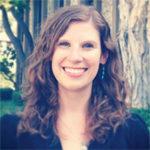 Rina Sobel Fox, MS, MPH, San Diego State University/University of California, San Diego, Joint Doctoral Program in Clinical Psychology, San Diego
Rina Sobel Fox, MS, MPH, San Diego State University/University of California, San Diego, Joint Doctoral Program in Clinical Psychology, San Diego
Background: Ms. Fox graduated Tufts University in Boston in 2007, earned a Master’s in Clinical Psychology from San Diego State University (Calif.) in 2012, and her Master’s in Public Health in 2014. A clinical psychology PhD student, her interest in rheumatic disease stems from what she sees as a “need and role for psychology” in the treatment of scleroderma.
“There is a real need, an opening, for psychological intervention,” she says, “and for having a psychologically oriented perspective when approaching medical intervention, as well, given the unique aspects of this particular rare illness.”
In 2014, Ms. Fox earned the Rheumatology Research Foundation’s Health Professional Research Preceptorship for her project, Differences in Sociodemographic and Medical Correlates of Body Image Distress in Patients with Limited and Diffuse Systemic Sclerosis. The ARHP’s Graduate Student Award is for a manuscript Ms. Fox is preparing, titled “Fear of Negative Evaluation in Patients with Systemic Sclerosis.”
‘Remember that there are other components at play beyond just medical variables that are going to influence an individual’s experience of the disease.’ —Rina Sobel Fox, MS, MPH
Q: What was the focus of your ARHP project?
A: The proposal was to evaluate the appropriateness of a questionnaire, the Brief Fear of Negative Evaluation Scale, for use among patients with scleroderma. In the future, we can use this questionnaire to study how appearance changes may affect people’s social relationships.
Q: What sparked your interest in this topic?
A: Before beginning my graduate studies, I had the opportunity to work in a health literacy lab, where I first discovered the field of health psychology. Subsequently, during graduate school, I was introduced to scleroderma research by my mentor, Dr. Vanessa Malcarne.
Q: What words do you have for clinicians caring for scleroderma patients?
A: I think the rheumatologists who treat this particular illness are really amazing. I think people who have expertise in this area are really very skillful at recognizing and treating the holistic impact of the disease. I would say just keep doing what you’re doing, and remember that there are other components at play beyond just medical variables that are going to influence an individual’s experience of the disease.
Q: What does this award mean to you?
A: It’s an incredible honor. It was very surprising, and very humbling and very exciting.
Q: Have you had a mentor?
A: Absolutely. I have been astoundingly fortunate to study under the mentorship of Dr. Vanessa Malcarne for the past six years now. She’s the one who introduced me to this type of work, and to scleroderma, in general. I truly would not be where I am without her guidance.
ARHP Graduate Student Award
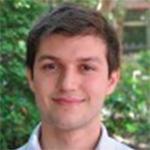 Antoine Baldassari, MPH/PhD student, University of North Carolina, Chapel Hill, N.C.
Antoine Baldassari, MPH/PhD student, University of North Carolina, Chapel Hill, N.C.
Background: A native of France who is “fanatical” (his word) about football (the European kind), Mr. Baldassari was thrilled to learn the research he’s doing on health disparities among knee osteoarthritis patients won an ARHP award.
“It’s an honor,” says Mr. Baldassari, who came to the U.S. when he was 15 and graduated Kalamazoo (Mich.) College with an economics and mathematics degree. “I’m involved in rheumatology through the lens of social epidemiology. The project, essentially, is trying to discern what characteristics are responsible for the health disparities we observe among people with arthritis.”
A two-month summer internship with Leigh Callahan, PhD, at UNC’s Thurston Arthritis Research Center steered Baldassari to focus on rheumatology and immunology. After undergrad, he worked at Thurston for two years as a research assistant. Now he’s finishing the first half of the school’s combined master’s/doctorate program.
“Leigh got me interested in epidemiology and rheumatology at the same time,” he says. “She taught me the basics, let me grow into someone who, eventually, applied to a grad program in the field and, likely, will stay here for my entire career. I would be on a very different trajectory if not for Leigh.”
‘I do think it is encouraging that the ARHP shows interest in more refined methodology: Epidemiology is moving forward rapidly, and we need to keep up!’ —Antoine Baldassari
Q: What is the most fulfilling part of your young career?
A: First of all, being a grad student, you are always exposed to new ideas and information. It is exhilarating to process such gigantic amounts of information and progressively integrate it into your work. It is great.
Q: Knowing it has yet to be published, what is the key takeaway of your ARHP project?
A: Research methods matter, and they matter increasingly as our questions become more precise. The assumptions we make in statistical inference are often shakier than we like to admit, and traditional regression methods sometimes fail in non-obvious ways. For instance, usual methods often do a good job at estimating things like differences in arthritis outcomes between social classes, but they can’t confidently say whether differences in obesity rates drive that association, or by how much. Fortunately, newer methods in epidemiology allow us to take those problems on much better.
Q: What does this award mean to you?
A: I was excited that a project proposal with a thousand words on statistical methods got approved, and that people at the ARHP are as nerdy as I am. Jokes aside, I do think it is encouraging that the ARHP shows interest in more refined methodology: Epidemiology is moving forward rapidly, and we need to keep up!
ARHP Ann Kunkel Advocacy Award
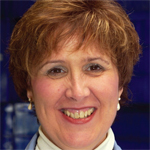 Janalee Taylor, MSN, RN, CNS, CNP, Associate Clinical Director and Clinical Nurse Specialist, Division of Rheumatology, Cincinnati Children’s Hospital Medical Center, Cincinnati
Janalee Taylor, MSN, RN, CNS, CNP, Associate Clinical Director and Clinical Nurse Specialist, Division of Rheumatology, Cincinnati Children’s Hospital Medical Center, Cincinnati
Background: Years of advocacy means years of volunteering, lots of it. So, of course, Ms. Taylor—who could not be reached for this profile—has been busy on the local, regional and national levels. She served for 10 years as the ARHP representative to the National Advisory Council of the Pediatric Rheumatology Collaborative Study Group and is now co-leader of quality improvement efforts for the Division of Rheumatology at Cincinnati Children’s and serves on a national task force for the development of quality outcome measures for JIA.
She credits the ARHP with helping her through multiple career milestones.
“Through all of the years and transitions,” she said in a statement provided by the ACR, “my involvement in ARHP has always been a highlight. It has provided a cornerstone for my education in the field of rheumatology.”
Ms. Taylor has been involved in pediatric rheumatology for more than 30 years. She earned her bachelor’s and master’s degrees from Indiana University School of Nursing in Indianapolis and a post-master’s degree from University of Cincinnati School of Nursing. She’s been at Cincinnati Children’s since 1988. Over that time, she proudly notes the evolution of treatment options for juvenile rheumatoid arthritis (JRA) have evolved from aspirin to the continuing potential of biologics.
She has been an active ARHP member for decades, participating on the Practice & Membership and Advocacy Committees. She was a member of the ARHP Outcomes Measures Task Force and the National Task Force on Development of Standards of Practice for Pediatric Rheumatology Training.
She has authored modules for the Nurse Practitioner/Physician Assistant Post Graduate Training Program and chaired the task force development of a Web-based case for JIA. She co-authored Partnership Training Programs for families in Care Coordination, Educational Rights and Family Support and helped train more than 500 families nationwide.
Janalee Taylor credits the ARHP with helping her through multiple career milestones.
The ACR’s Distinguished Fellows Awards
For they’re some jolly good fellows … who rheumatology can’t deny.
This year’s recipients of the ACR Distinguished Fellows Awards aren’t just a class of rheumatologists who’ve “performed meritoriously,” as the honor’s guidelines state. They’re also special in that 2015 is the 35th year ACR has bestowed the honor upon the field’s next generation. The Rheumatologist spoke with the winners about their burgeoning contributions to advancing rheumatology:
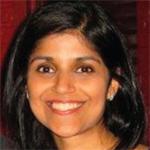 Medha Barbhaiya, MD, MPH, Instructor of Medicine, Brigham and Women’s Hospital (BWH), Harvard Medical School, Boston
Medha Barbhaiya, MD, MPH, Instructor of Medicine, Brigham and Women’s Hospital (BWH), Harvard Medical School, Boston
Background: Dr. Barbhaiya graduated Columbia University and obtained her medical degree from Weill Cornell Medical College. She recently completed her rheumatology fellowship training at BWH, during which time she earned an MPH from Harvard in the program for clinical effectiveness.
“I was drawn to rheumatology as a medical student due to the intellectual challenge of ‘solving’ complex clinical cases, the opportunity to conduct research in a field with still many unknowns, and the ability to form long-lasting, meaningful relationships with patients,” she says.
Dr. Barbhaiya is focused on better understanding the epidemiology of incident systemic lupus erythematosus (SLE), outcomes related to SLE, including cardiovascular disease, mortality, and avascular necrosis of the bone, and classification of the antiphospholipid syndrome (APS).
“My goal is to help provide insight into the potential associations of environmental and behavioral risk factors for the development of SLE, and to better understand various outcomes related to cardiovascular diseases and survival in this population,” she says.
Her investigation of environmental risk factors for SLE using large prospective cohorts under the mentorship of Dr. Karen Costenbader earned her the 2015 Rheumatology Research Foundation Scientist Development Award. She is the ACR Classification Criteria Subcommittee fellow representative.
Q: What is it about rheumatology that keeps you so engaged?
A: In a field with still many unanswered questions and such complex diseases, there is much work yet to be done to better understand the etiology and outcomes related to these diseases. My motivation comes from hoping to contribute to answering these questions over the course of my career.
Q: What is the most fulfilling part of your job?
A: I am blessed to work with a phenomenal group of clinical and research colleagues and patients, and I truly enjoy going to work every day. It is particularly fulfilling to see the direct impact of research advances on patient care, and this is what motivates me to incorporate significant research into my career.
Q: What does this award mean to you?
A: While it feels incredible to be recognized for hard work, my father always taught me that awards should also serve to motivate one to work harder and better. That is what I intend to do.
Q: If you could change one thing about the field, what would it be?
A: That’s a no-brainer. Our diseases, which can be truly debilitating and often affect previously young, healthy individuals, need cures. Hopefully, research efforts over the next few decades (or sooner) will lead us to this ultimate goal.
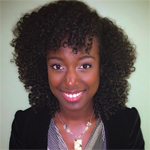 Ashira Blazer, MD, Instructor of Medicine in Rheumatology, New York University School of Medicine, New York
Ashira Blazer, MD, Instructor of Medicine in Rheumatology, New York University School of Medicine, New York
Background: Dr. Blazer was raised in a big family—her parents had 17 combined siblings. So the cousins grew up close as best friends. When several were diagnosed with lupus as young adults, she wanted to help.
“I was interested in the physiology of lupus and being able to help my family,” she says.
Two decades later, she’s doing just that. Dr. Blazer earned her medical degree at Baylor College of Medicine in Houston. She completed an internal medicine residency at Vanderbilt University Medical Center in Nashville and did her fellowship at New York University Langone Medical Center.
Her areas of interest are ethnically determined predictors of disease severity, particularly in systemic lupus erythematosus (SLE). She is a member of the Lupus Nephritis Trials Network and her work with Apolipoprotein 1 (APOL1) in African populations has taken her to Ghana, where survival rates are much worse than in the U.S.
Q: You wanted to be a doctor as a kid to help your family. What sustained that passion?
A: The human is fascinating. Physiology is fascinating, immunology is fascinating. The thirst of knowledge and being able to learn those things—and being privileged enough to have the opportunities to learn—were definitely sustaining. Apart from that, taking care of patients is very gratifying. I get to do something I love every day.
Q: What is it about research that appeals to you vs. clinical work?
A: This came from wanting to learn about lupus as it affects people of African ancestry. My cousins who have lupus have been sicker than some of the patients of other heritages that I’ve met. So I just always wondered why that was. What were the biologic causes of those disparities? For a long time in medicine, I’d just hear, ‘There are socioeconomic differences or there are differences in lifestyles or practices or access to care.’ It just didn’t seem like that fully captured the reasons for health disparities.
Q: What is the dream discovery for you as a researcher?
A: Right now, I’m working with APOL1 and my hypothesis is that this gene is expressed more or not depending on the environment…my dream discovery would be to determine what drives this expression in lupus and how we can turn it off. So that this excess risk related to these polymorphisms becomes obsolete.
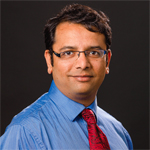 Abhijeet Danve, MBBS, MD, Yale University, New Haven, Conn.
Abhijeet Danve, MBBS, MD, Yale University, New Haven, Conn.
Background: Dr. Danve, who studied internal medicine in India before coming to the United States in 2009, says he was a “confident clinician” caring for about 50 patients a day in Mumbai.
He was always enticed by the pathophysiology of inflammation, immunological response and its correlation with clinical manifestations of various rheumatic diseases. So he came to the U.S. to pursue his interest in rheumatology, completed his residency at New York Medical College and followed up with a clinical fellowship in Rheumatology at Oregon Health & Science University.
“At OHSU, I received tremendous support from my mentors and program director,” he says. “That really changed the direction that my career went. I was mainly focused on clinical practice, but I have developed an immense interest in clinical research.”
While at OHSU, he won the Marshall J. Schiff Memorial Fellow Research Award given by the ACR and earned the gold medal for the “Knowledge Bowl” at the 2013 ACR/ARHP Annual Meeting. After a year of research training with James O’Dell, MD, at the University of Nebraska, he took a faculty position at Yale.
“The faculty at Yale is helpful and a pleasure to work with!” he says. “I am trying to develop my own spondyloarthritis clinic and research project on early diagnosis of spondyloarthritis here.”
Q: Why are you focusing on spondyloarthritis?
A: Spondyloarthritis poses significant challenges in terms of early diagnosis, assessment of disease activity, predicting response to the treatment and monitoring radiographic progression. Although it is as prevalent as rheumatoid arthritis, SpA is commonly under-recognized or recognized late; the average delay in diagnosis is 8–10 years. Now we have better treatment options available for spondyloarthritis. I am focusing on developing better screening tools to diagnose these patients early among the sea of patients with mechanical back pain.
Q: What would you change about rheumatology?
A: I think in rheumatology practice, the main issue is with early diagnosis given the non-specific and heterogeneous clinical presentation of these diseases. We need more research about biomarkers and newer diagnostic techniques with superior sensitivity and specificity for early diagnosis. Also, we need bigger patient registries and larger studies to learn more about the effective treatment strategies.
Q: What has the ACR meant to you during the early stages of your career?
A: It’s a great international organization, very supportive to the fellows in training and the young investigators. The ACR/ARHP Annual Meetings have been a tremendous learning opportunity.
Q: What does this award mean to you?
A: It gives me a sense of accomplishment—that I could do productive and constructive work during my fellowship. I have a lot of respect for this award. It gives me motivation to continue to do well in future!
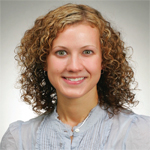 Emily Fox, MD, Pediatric Rheumatology Fellow, Stanford Children’s Health, Lucile Packard Children’s Hospital, Palo Alto, Calif.
Emily Fox, MD, Pediatric Rheumatology Fellow, Stanford Children’s Health, Lucile Packard Children’s Hospital, Palo Alto, Calif.
Background: A Distinguished Fellow Award from the ACR makes sense for Dr. Fox, given that the ACR has been instrumental in her career.
From a scholarship that allowed her to attend Annual Meetings to exposure to state-of-the-art clinical symposiums, the ACR has shown her a career path.
“Through these meetings, I have been able to expand my rheumatology knowledge and meet colleagues throughout the country and world,” she says.
Dr. Fox earned her medical degree from the University of Nebraska Medical Center in Omaha, Neb., and completed her pediatric residency training at Children’s Mercy Hospital in Kansas City, Mo. She’s in her third year of pediatric rheumatology fellowship at Stanford Children’s Health while also working on a Master’s of Science in epidemiology and clinical research at Stanford University. In particular, she is working on a global project involving patients with dual diagnoses of systemic JIA and inflammatory bowel disease.
Dr. Fox is a very active member of the Pediatric Rheumatology Care and Outcomes Improvement Network (PR-COIN) and has represented the Stanford division at the biannual meeting for several years. She is also a member of the Childhood Arthritis and Rheumatology Research Alliance (CARRA), serving on the Fellows Leadership Committee for the past two years.
Q: You have a strong interest in JIA. Why?
A: I have had some interesting and complex patients with a diagnosis of JIA. I also have an interest in patient-reported outcomes and have become involved with PR-COIN during fellowship, which specifically looks at the quality of care and outcomes in JIA patients.
Q: Working with children can be difficult for some people. What is the appeal for you?
A: Working with children can be challenging as they cannot always verbalize their complaints. However, it is incredibly rewarding taking care of children and watching them improve and developing the therapeutic bond with patients and their families.
Q: What is it about rheumatology that keeps you so engaged?
A: No two patients are alike, and I enjoy the complexity of the diseases we treat. I also have had the opportunity to explore my research interests, which have been sparked by patients I have treated during my fellowship.
Q: Three years in, what’s your best advice to the next generation of fellows?
A: Seek out mentors early to help guide and maximize your time in fellowship.
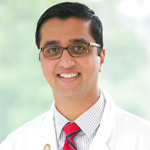 Pravitt Gourh, MD, Henry Metzger Scholar in Translational Medicine, National Institute of Arthritis and Musculoskeletal and Skin Diseases (NIAMS), National Human Genome Research Institute (NHGRI), National Institutes of Health (NIH), Bethesda, Md.
Pravitt Gourh, MD, Henry Metzger Scholar in Translational Medicine, National Institute of Arthritis and Musculoskeletal and Skin Diseases (NIAMS), National Human Genome Research Institute (NHGRI), National Institutes of Health (NIH), Bethesda, Md.
Background: India to Texas isn’t exactly a nonstop flight.
But Dr. Gourh received his medical degree from Maharaja Sayajirao University in India, and came to the U.S. in 2000 to pursue a Master’s degree at Texas Tech University in Lubbock. In 2004, he joined the rheumatology division at the University of Texas at Houston; there he developed an interest in the genetics of scleroderma while working with Drs. Frank Arnett and Maureen Mayes. Using a candidate gene approach, he was the first to report PTPN22, TBX21, TNFSF4, BANK1, BLK gene associations with scleroderma.
“Rheumatology is one of the most cerebral specialties in internal medicine,” he says. “Rheumatologic diseases truly affect the whole body and, at times, can mimic other diseases, making rheumatologists the Sherlock Holmes amongst doctors.”
He joined NIAMS as a clinical rheumatology fellow in 2012 and Dr. Daniel Kastner’s lab at NHGRI, where he is coordinating the largest genetic study in African-American scleroderma patients using such cutting-edge genetic technologies as whole exome sequencing and array-based genome-wide genotyping. In 2014, he was appointed a NIAMS scholar.
Dr. Gourh joined the ACR in 2005 and currently serves on the Fellows in Training and Annual Meeting Planning Committees. He previously was a member of the ACR Research Committee, and was awarded the Rheumatology Research Foundation Scientist Development Award in 2015.
Q: What advice do you have for the next generation of rheumatologists?
A: Figure out what you are passionate about, find the right mentor, and never give up.
Q: What is the most fulfilling part of your job?
A: At NIH, I can see a patient, ask a question, enroll a patient on a protocol, collect samples, conduct experiments, analyze data, and use results to better provide care for the patients. In essence, being able to implement translational research into clinical medicine.
Q: What does this award mean to you?
A: I am very fortunate to be able to work with some of the best minds in rheumatology, and this award is a reflection on all of them. An award like this is very humbling but also reassuring that I am on the right track.
Q: What are the most impactful changes to the field you have witnessed in your career?
A: Advancement in genomics has played a big role in rheumatologic diseases, especially in the arena of auto-inflammatory diseases, where technology has been utilized to identify and name new diseases. From a clinical perspective, the ACR’s “Within our Reach” campaign has made a tremendous impact in RA patients, with improvement in disease symptoms, outcomes and survival.
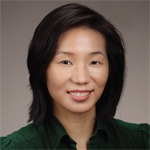 Hanna Kim, MS, MD, Lawrence Shulman Scholar in Translational Research, National Institute of Arthritis and Musculoskeletal and Skin Diseases (NIAMS)/National Institutes of Health (NIH), Bethesda, Md.
Hanna Kim, MS, MD, Lawrence Shulman Scholar in Translational Research, National Institute of Arthritis and Musculoskeletal and Skin Diseases (NIAMS)/National Institutes of Health (NIH), Bethesda, Md.
Background: Many rheumatologists enter the field for the intellectual curiosity that comes with being a rheumatic detective, and Dr. Kim is no different. But while she revels in the “diagnostic and clinical challenge of pediatric rheumatology,” what keeps her so engaged are the patients.
“Every patient I see can teach me something about how the disease affects an individual and family, including medication side effects, changes in school attendance, as well as participation in sports and other activities,” she says. “Additionally, I get to see how the right treatment can lead to improvement in multiple facets of patients’ lives.”
Dr. Kim received medical training at University of California at Irvine and pediatric internship and residency training at Children’s National Medical Center/George Washington University (GWU) in Washington, D.C. She did pediatric rheumatology fellowship training at A.I. duPont Hospital for Children/Thomas Jefferson University in Wilmington, Del., NIAMS/NIH in Bethesda, Md., and Children’s National Health System in Washington, D.C.
She was a founding member of the Childhood Arthritis and Rheumatology Research Association (CARRA) Fellows Committee and was elected co-chair in 2014–15. She has earned multiple awards, including the Earl J. Brewer Best Abstract Award by the American Academy of Pediatrics Rheumatology Section in 2014 and the Pediatric Research Award by the Rheumatology Research Foundation in 2015.
Q: What advice do you have for the next generation of rheumatology fellows?
A: Use your fellowship to find something you are passionate about because you can make a difference! Rheumatology is such an exciting field right now because even a fellow has the potential to make a major impact in the field, which is so collaborative and supportive.
Q: How is mentorship important during fellowship?
A: Mentoring is so important, particularly during training. Different mentors, formal and informal, can offer essential guidance on the pathway to success. From my mentors, I have gained insight and perspective on becoming an excellent clinician, the collaborative approach required for clinical trials, and how to approach a career in research as a physician from my mentors, all of which has been invaluable.
Q: If you could change one thing about the field of rheumatology, what would it be?
A: I would try to increase early positive exposure during medical school and pediatric residency to pediatric rheumatology as a specialty. Patients sometimes have to cross state lines and wait weeks to months for an appointment, when early diagnosis and treatment are so critical.
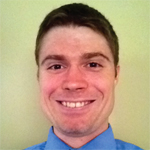 Brett Smith, DO, Rheumatologist, East Tennessee Medical Group, Alcoa, Tenn.
Brett Smith, DO, Rheumatologist, East Tennessee Medical Group, Alcoa, Tenn.
Background: Dr. Smith doesn’t get his Distinguished Fellows Award. It’s not that he didn’t receive it, mind you. He just doesn’t understand why he did.
“It’s still very surprising to me simply because I don’t really consider myself to be on a platform to receive that privilege,” he says. “From a professional standpoint, it’s very humbling.”
Dr. Smith earned his medical degree at the University of Medicine and Dentistry of New Jersey and did his residency at the University of Kentucky. He completed his rheumatology training at Wake Forest University Baptist Medical Center in Winston-Salem, N.C.
At Wake Forest, he studied the effect of metformin on self-reported pain scores in patients with Type 2 diabetes. He also worked on a quality improvement project focused on identification of cognitive dysfunction in elderly patients with rheumatoid arthritis (RA). The study aimed to identify a cost-effective intervention.
Q: What lured you to rheumatology?
A: My mother has psoriatic arthritis. I’ve seen her ups and her downs through having an inflammatory condition, so that was what originally piqued my interest. And then I worked around some really good people when I was an internal medicine resident … and they were just really, really good mentors. If you see somebody with hypertension, you can control their blood pressure and improve their long-term outcomes. But they may not necessarily notice a difference, per se. In rheumatic disease, people usually feel so poorly and you can turn them around in a short period of time. Very satisfying for the patient and for you.
Q: How much has the progression of treatment options pleased you?
A: It’s kind of unbelievable actually … when you start with gold and D-penicillamine and a couple of these older drugs, then all of the sudden you’ve got 25 options for rheumatoid and you’ve got 15 options for psoriatic arthritis. It’s just amazing the explosion of the understanding of immunology and treatment options.
Q: Do you see that kind of progress continuing?
A: We’re just scratching the surface of immunology and what these drugs mean for people and the different pathways. Europe’s a little bit ahead of us in the biosimilars and we’re trying to get them here. There’s a lot of pathways still to be discovered because research is ongoing … there’s definitely a lot of room for expansion and understanding of disease mechanisms.
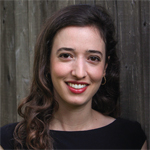 Sara Tedeschi, MD, Clinical Research Fellow in Rheumatology, Brigham and Women’s Hospital (BWH), Boston
Sara Tedeschi, MD, Clinical Research Fellow in Rheumatology, Brigham and Women’s Hospital (BWH), Boston
Background: Dr. Tedeschi’s interest in lupus began during her internal medicine residency and continued during her fellowship training, when she collaborated with Drs. Karen Costenbader and Bonnie Bermas on an investigation into rheumatologic and obstetric outcomes of women at the BWH Lupus Center.
At the 2014 ACR/ARHP Annual Meeting, she presented highlights of the association between lupus activity in the six months before conception and continued or worsened activity of the same type during pregnancy. Results were published in Lupus.
At the 2015 meeting, she presented an analysis of adverse pregnancy outcomes in relation to specific types of lupus activity before and during pregnancy. Also at the 2015 meeting, she presented an analysis regarding the risk of RA. “We looked at how the combination of [elevated BMI and the presence of ACPAs] affected the risk of developing RA in the Nurse’s Health Study, a very large, prospective cohort of female nurses,” she says. “We found that when these two risk factors were present together, the risk of RA was magnified about eightfold.”
After graduating Brown University, she earned her medical degree at Vanderbilt and completed her internal medicine residency at BWH. She is on track to receive her master’s degree from the Harvard School of Public Health in May. During her fellowship, she also created an RA diagnosis and management guide for providers at the Northern Navajo Medical Center in Shiprock, N.M.
Q: Why rheumatology?
A: It’s an incredibly interesting field. … For many of the conditions that we treat, we see our patients for years, and I really enjoy building those relationships. I also have a strong interest in clinical research and so it seemed like an excellent fit, both because of the patient care component and for the opportunity to perform impactful research.
Q: Where do you want to be in 5–10 years?
A: I hope to establish myself as a clinical researcher and, ultimately, to progress toward becoming an independent investigator. I look forward to developing a panel of patients who I care for over many years and who provide inspiration for my clinically oriented research.
Q: What role do mentors play for you?
A: I’ve been incredibly fortunate to have two fantastic research mentors during fellowship. Dr. Karen Costenbader has been my primary mentor since my residency and throughout fellowship, and Dr. Dan Solomon has become a mentor during my fellowship. I look to them to guide me toward research questions that are worthy of intense study, and that will contribute knowledge to our field. Even as my skills have grown through my MPH coursework, I continue to turn to Karen and Dan for advice regarding how to plan and perform analyses, to review my progress, and to make suggestions about different approaches I hadn’t considered.
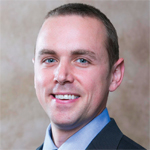 Kenneth Van Dyke, DO, Rheumatologist, Adena Health Systems, Chillicothe, Ohio
Kenneth Van Dyke, DO, Rheumatologist, Adena Health Systems, Chillicothe, Ohio
Background: Dr. Van Dyke worked as a registered nurse for two years before pursuing a career in medicine. After earning his DO, he completed internal medicine training at Riverside Methodist Hospital in Columbus, Ohio. There he began to think of rheumatology as a career choice, and he embarked on a fellowship at Louisiana State University Health Science Center in New Orleans.
At LSU, Dr. Van Dyke fostered his interest in rheumatology by presenting clinical cases at local conferences. His abstracts were chosen for podium presentations at LSU Research Day during both years of his fellowship. His presentation of a case of crusted scabies in a patient with active lupus was published in The Rheumatologist.
Two years in a row, his poster abstracts were accepted at the Clinical Congress of Rheumatology. In 2014, he presented a case on a limb girdle muscular dystrophy type 2B, a clinical case he is submitting for publication. He also was part of the team that placed third at the ACR “Knowledge Bowl.”
“The field is evolving at a rapid pace,” he says. “Every day, there is new information and a better understanding of diseases. I continuously find myself reading and finding new information to pass on to my patients.”
Dr. Van Dyke is working in private practice at Adena Health System, providing care to rural communities in Southern Ohio.
Q: What do you like most about your job?
A: Working together, with the patient, to teach them about their condition. As rheumatologists, we are often educating the patients on what disease they have, as well as reassuring patients about what they do not have. In both of these situations, I try to do my best to alleviate fears and provide the best information for them.
Q: What lessons did you learn from your mentor?
A: Whether one’s career will be in academics or as a clinical rheumatologist, a mentor is very valuable. When I was in training, preparing for a career in clinical medicine, my mentors always emphasized proving a diagnosis to myself and not just accepting diagnoses that are already made for me.
Q: How do you want others to remember your work in this field?
A: I want to be remembered as a physician that colleagues, staff and patients can count on and trust.
Q: What does the ACR mean to you?
A: The ACR has allowed fellows to be active by attending the annual conference. This has been a great opportunity for networking and career information. In practice, I frequently use their website for information regarding billing, classification criteria and patient handouts.
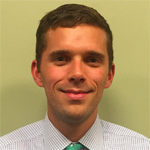 Zachary Wallace, MD, Fellow, Division of Rheumatology, Allergy and Immunology, Massachusetts General Hospital, Boston
Zachary Wallace, MD, Fellow, Division of Rheumatology, Allergy and Immunology, Massachusetts General Hospital, Boston
Background: In Dr. Wallace’s third year of medical school at Georgetown University, his attending was a rheumatologist named Sean Whelton, MD. One day, a patient with lupus was on the census.
“I became very interested in her case and subsequently spent time with Dr. Whelton and other rheumatologists in outpatient clinics,” Dr. Wallace adds. “I thoroughly enjoyed the experience of meeting these patients, learning about their conditions, realizing how much we still do not know about them, and recognizing how the field was changing rapidly with the introduction of new effective medications. By the time I started residency, I was pretty sure I was going to pursue rheumatology.”
After Georgetown, Dr. Wallace did his internal medicine training at Massachusetts General, where he’s finishing the last year of his rheumatology fellowship. In conjunction with the fellowship, he is completing a Master’s of Science in epidemiology at the Harvard T.H. Chan School of Public Health in Boston.
Q: What is it about rheumatology that keeps you so engaged?
A: There is so much to learn! Whether it is in clinic or doing clinical research, I am always facing new challenges and learn new things every day. It’s an absolute pleasure to know that I am helping people through my clinical work and my research.
Q: What is the most fulfilling part of your job?
A: Like every job, there are good days and bad days. But the best part of my day are the people I get to work with every day. I am surrounded by intelligent and motivated people who drive me to achieve the best I can.
Q: What advice do you have for the next generation of rheumatologists?
A: Take chances. As a post-call intern one day, I fired off an e-mail to Dr. John Stone to express my interest in rheumatology and see if there were any research opportunities I could get involved in. Five years later, I have him to thank for the great career I am off to as both a clinician and a researcher.
Q: If you could change one thing about the field of rheumatology, what would it be?
A: I wish that more people would recognize how amazing it is to be a rheumatologist. It’s often a bit of a black box to medical students and residents. We need to change that and make it more approachable.
Richard Quinn is a freelance writer in New Jersey.



